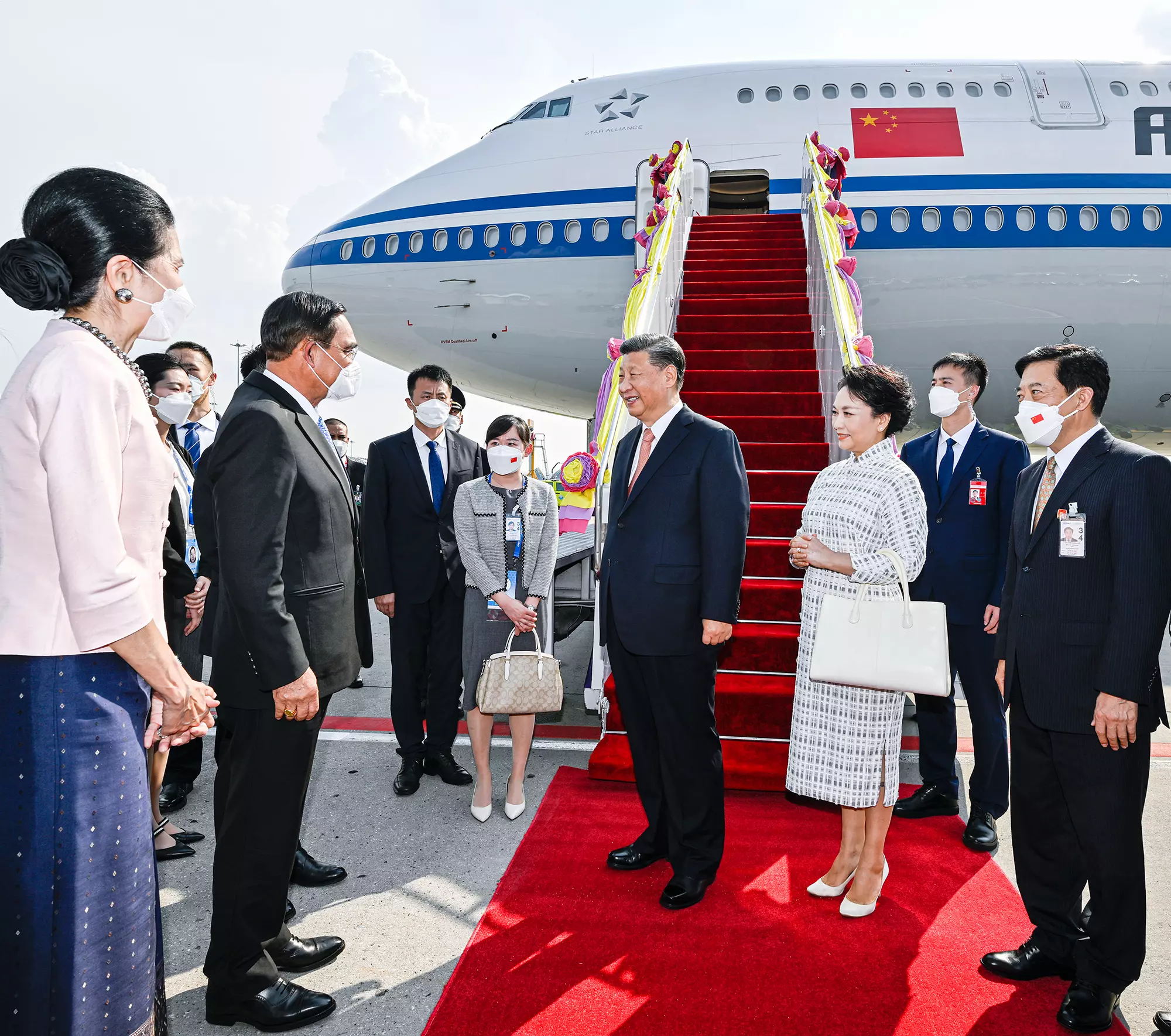Nov 17(ABC): Chinese President Xi Jinping on Thursday delivered a written speech to the Asia-Pacific Economic Cooperation (APEC) CEO Summit held in Bangkok, capital of Thailand, calling for steadfastly advancing the Asia-Pacific regional economic integration and building a Asia-Pacific community of shared future, while rejecting any attempt to wage a cold war in the Asia-Pacific.
In his speech, delivered as he arrived in Bangkok on Thursday afternoon for a visit to Thailand and attendance at the APEC Leaders’ informal meeting on Friday and Saturday, Xi also stressed that as China pursues Chinese modernization, it will remain committed to peace, development and cooperation, and delivering mutual benefit.
Xi’s remarks offered the much-needed encouragement for regional businesses, which are facing great potential for cooperation but are also concerned about rising geopolitical tensions in the region, several local businesses said on Thursday. Many are also hoping for China’s leading role in advancing peace and development in the region, as the US continues to focus on geopolitics.
‘No one’s backyard’
In the closely watched speech, Xi said that while the Asia-Pacific enjoys overall stability and win-win cooperation remains the underlying trend, the Cold War mentality, hegemony, unilateralism and protectionism are mounting, and acts that distort international norms, disrupt economic linkages, inflate conflicts in the region, and impede development cooperation are all too common.
“All these pose a challenge to peace and development in the Asia-Pacific,” Xi said in the written speech, stressing that “The Asia-Pacific is no one’s backyard and should not become an arena for big power contests. No attempt to wage a new cold war will ever be allowed by the people and by our times!”
The Chinese president called on regional economies to strengthen cooperation, support and help each other, and make the Asia-Pacific a leader in boosting global economy. “Unilateralism and protectionism should be rejected by all; any attempt to politicize and weaponize economic and trade relations should also be rejected by all,” Xi said.
Xi’s call for regional cooperation and rejection of Cold War mentality and protectionism offer great encouragement for regional businesses, including those in Thailand, which are becoming increasingly worried about geopolitical tensions and economic disruptions.
At the main venue for the APEC leaders’ informal meeting in Bangkok on Thursday, some business representatives shared with the Global Times their concerns over geopolitical tensions and their hope for China to play a leading role in driving regional economic integration, especially in the post COVID-19 pandemic recovery.
“For every company, it’s very important to reconnect after three years. So this APEC is an opportunity to connect with other economies after every one has closed for a long time. This is a good opportunity and a good time,” Thanawit Chatrittichaikul, assistant manager of the public relations department at Energy Absolute, a major renewable power producer in Thailand, told the Global Times on Thursday, noting that the company is increasingly looking to expand cooperation with China.
In his written speech on Thursday, Xi said that the Chinese economy and the Asia-Pacific economy are interdependent and deeply integrated with one another.
The Chinese president also expounded on China’s pursuit of Chinese modernization on all fronts, a call made at the recently concluded 20th National Congress of the Communist Party of China (CPC), stressing that “we will make greater contribution to world peace and development.
This is the first overseas trip for the Chinese president after the conclusion of the 20th CPC National Congress, which includes attendance at the just concluded G20 leaders’ summit in Bali, Indonesia. This is also the first visit to Thailand by Xi as the Chinese president. This will also be the first time for Xi to attend the APEC leaders’ meeting in person since 2018. The 2019 meeting was canceled due to the domestic situation in the host country Chile, and the meetings in 2020 and 2021 were held virtually.

